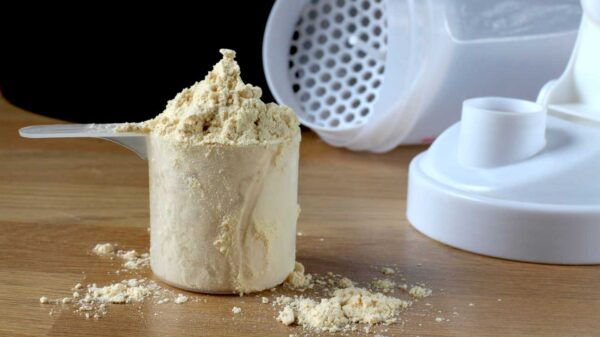Common Myths and Misconceptions About Creatine Busted
In the ever-evolving realm of fitness and supplementation, few topics spark as much debate and misinformation as Creatine. As a widely popular and effective supplement, Creatine has become the subject of various myths and misconceptions. In this comprehensive guide, we aim to debunk these myths, providing you with accurate information to make informed decisions about incorporating Creatine into your fitness routine.
Understanding Creatine: A Brief Overview
Creatine 101: What Is It?
Creatine is a natural compound that plays a crucial role in the production of energy during high-intensity, short-duration activities. It is found in small amounts in certain foods and is also synthesized by the body. The majority of creatine in the body is stored in muscles, where it helps in the production of adenosine triphosphate (ATP), the primary energy currency of cells.
- Natural Sources:
- Creatine is found in foods like red meat, fish, and poultry. However, the amount obtained from diet alone is often not sufficient for those involved in intense physical activities.
- Supplementation:
- Due to its performance-enhancing benefits, creatine supplements are popular among athletes and fitness enthusiasts. Creatine supplements come in various forms, with creatine monohydrate being the most researched and widely used.
- Energy Production:
- During short bursts of intense activity, such as weightlifting or sprinting, the body relies on ATP for energy. Creatine helps regenerate ATP, allowing for a rapid and sustained supply of energy during these activities.
- Performance Benefits:
- Research suggests that creatine supplementation can improve strength, power, and muscle mass. It may also enhance recovery between bouts of intense exercise.
- Dosage and Timing:
- The typical creatine supplementation involves a loading phase (higher doses for a short period) followed by a maintenance phase. However, some individuals opt for a lower, consistent dose without a loading phase.
- Safety:
- Creatine is generally considered safe when used within recommended doses. However, individuals with kidney issues should consult a healthcare professional before starting creatine supplementation.
- Hydration:
- Some users may experience water retention initially, so staying well-hydrated is important. This is not fat gain but an increase in water content within the muscles.
- Vegetarian and Vegan Diets:
- Since creatine is mainly found in animal products, individuals following vegetarian or vegan diets may benefit more from supplementation.
In conclusion, creatine is a well-researched and effective supplement for enhancing performance in high-intensity, short-duration activities. However, it’s crucial to use it responsibly, following recommended dosages and consulting healthcare professionals if there are any health concerns.
Myth #1: Creatine is Only for Bodybuilders
One common misconception about creatine is that it is exclusively for bodybuilders. In reality, creatine is a versatile supplement with benefits that extend beyond the realm of bodybuilding. Here’s a breakdown of why this myth is inaccurate:
- Athletic Performance:
- Creatine is not limited to bodybuilders; it is widely used by athletes across various sports. Its ability to enhance short-duration, high-intensity activities makes it valuable for athletes engaged in activities such as sprinting, weightlifting, football, and more.
- Muscle Strength and Power:
- While bodybuilders use creatine to support muscle growth, individuals involved in sports that require strength and power, such as sprinters or powerlifters, can also benefit. Creatine aids in improving overall strength and explosive power during brief, intense efforts.
- Endurance Sports:
- Contrary to the stereotype, creatine is not exclusively for those seeking muscle mass. Athletes involved in endurance sports, like long-distance running or cycling, may experience benefits as well. Creatine can contribute to improved energy production and recovery between bursts of intense effort.
- Aging Population:
- Research suggests that creatine supplementation may have positive effects on muscle mass and strength in older adults. It can be beneficial for maintaining overall health and mobility, not just for those aiming to build muscle.
- Neuromuscular Health:
- Creatine plays a role in supporting the health of the neuromuscular system. It may have neuroprotective effects and has been studied for its potential in conditions affecting muscle and neurological health.
- Vegetarian and Vegan Diets:
- Individuals following vegetarian or vegan diets, who may have lower natural creatine intake from food, can also benefit from supplementation. It is not limited to a specific demographic.
In summary, creatine is a versatile supplement suitable for a broad range of individuals involved in different activities, not just bodybuilders. Its impact on strength, power, and overall athletic performance makes it relevant for athletes, fitness enthusiasts, and even older adults looking to maintain muscle health and mobility.
Debunking Common Creatine Myths
Myth #2: Creatine Causes Kidney Damage
A persistent misconception surrounding creatine supplementation is the unfounded belief that it can lead to kidney damage. This myth has been debunked by numerous scientific studies, and here’s why:
- Research-Based Safety:
- Extensive research has consistently shown that creatine supplementation, when used within recommended doses, does not pose a risk of kidney damage in healthy individuals. Studies have failed to establish a causal link between creatine consumption and renal issues.
- Metabolism and Excretion:
- Creatine is metabolized in the body and eventually excreted through urine. The kidneys play a role in this excretion process. However, the amounts of creatine typically used in supplementation are well within the normal metabolic capacity of the kidneys.
- Population Studies:
- Large-scale population studies have failed to demonstrate any increased risk of kidney damage associated with creatine use. These studies involve diverse groups, including athletes and non-athletes, providing robust evidence against the myth.
- Clinical Monitoring:
- Individuals with pre-existing kidney conditions are advised to consult healthcare professionals before starting any supplementation, including creatine. However, for those with normal kidney function, creatine has not been shown to cause harm.
- Dehydration and Hydration:
- Some early concerns about creatine and kidneys may have arisen due to the potential for dehydration, as creatine can lead to increased water retention within muscles. Adequate hydration is crucial, but responsible use of creatine and maintaining proper fluid intake can mitigate any dehydration-related risks.
- Long-Term Studies:
- Studies examining the long-term effects of creatine supplementation have not found evidence of kidney damage. It has been used and studied for several decades, further supporting its safety profile.
In conclusion, the idea that creatine causes kidney damage is a myth unsupported by scientific evidence. When used responsibly and in appropriate doses, creatine is considered a safe and well-tolerated supplement for the majority of individuals, including those with healthy kidneys. As always, consulting with a healthcare professional before starting any supplement regimen is advisable, especially for individuals with pre-existing health conditions.
Myth #3: Creatine Leads to Water Retention
One common misconception about creatine is that it causes excessive water retention, leading to bloating or a puffy appearance. While creatine may contribute to a temporary increase in water weight, it is important to understand the details to dispel this myth:
- Intracellular Water Accumulation:
- Creatine promotes the retention of water within muscle cells, not in the spaces between cells or under the skin. This intracellular water retention is a desirable effect as it contributes to improved hydration of muscle tissue.
- Not Subcutaneous Water Retention:
- Unlike some substances that cause subcutaneous water retention, leading to a bloated look, creatine’s impact is within the muscle cells. It does not cause water to accumulate under the skin.
- Increased Muscle Size:
- The water retained inside the muscles contributes to an increase in muscle volume. This is often accompanied by enhanced strength and a fuller, more pumped feeling during workouts. It is not a result of excess body fat or subcutaneous water retention.
- Temporary Effect:
- The initial increase in water weight is usually temporary and stabilizes after the loading phase. Subsequent use of creatine at a maintenance dose maintains the positive effects on muscle performance without a significant ongoing increase in water retention.
- Hydration Importance:
- Adequate hydration is crucial when using creatine. Staying well-hydrated helps optimize its effects and minimizes the risk of potential dehydration, which may be wrongly attributed to creatine use.
- Individual Response:
- Responses to creatine can vary among individuals. Some may experience more noticeable water retention effects than others. This does not imply fat gain but rather an increase in water content within the muscles.
- Performance Benefits:
- The water retained within muscles contributes to improved exercise performance by supporting energy production. This is a key reason why athletes and fitness enthusiasts use creatine.
In summary, while creatine may lead to a temporary increase in water weight, it is not a cause for concern. The water retention occurs within the muscles, contributing to improved performance and muscle size. This effect is distinct from subcutaneous water retention associated with bloating and does not indicate fat gain. Responsible use of creatine, coupled with proper hydration, can help individuals maximize its performance benefits without undue concerns about water retention.
Optimizing Creatine Supplementation
Maximizing Benefits: How to Use Creatine Effectively
To maximize the benefits of creatine supplementation, it’s important to follow a strategic approach. Here are key guidelines for using creatine effectively:
- Loading Phase (Optional):
- A loading phase involves taking a higher dose of creatine for a short period, typically around 20 grams per day divided into 4 doses, for 5-7 days. This helps saturate muscle creatine stores more quickly.
- While a loading phase can accelerate results, it’s not mandatory. Some individuals choose to skip the loading phase and go straight to the maintenance dose.
- Maintenance Dose:
- Following the loading phase (if chosen), transition to a maintenance dose of around 3-5 grams per day. This allows for consistent replenishment of creatine stores without the need for higher amounts.
- Creatine monohydrate is the most researched and widely used form, known for its effectiveness and safety.
- Timing Matters:
- Creatine timing is flexible, and it can be taken at any time of the day. It can be consumed with meals or mixed with a beverage. The key is consistency in daily intake.
- Some individuals prefer to take creatine around their workout times to coincide with increased blood flow to muscles.
- Hydration is Crucial:
- Creatine may increase water uptake by muscle cells, so staying adequately hydrated is essential. Drink plenty of water throughout the day to optimize the benefits of creatine and avoid potential dehydration.
- Combine with Carbohydrates:
- Consuming creatine with a carbohydrate source can enhance its absorption. This is because insulin, released in response to carbohydrates, facilitates creatine uptake by muscle cells.
- Individualized Approach:
- Responses to creatine can vary among individuals. Some may see rapid benefits, while others might take longer. It’s essential to be patient and consistent with supplementation.
- Pair with Exercise:
- Creatine’s benefits are most pronounced during high-intensity, short-duration activities. Combining creatine supplementation with regular resistance training or other forms of intense exercise can maximize its impact on strength and power.
- Consultation with Healthcare Professionals:
- Individuals with pre-existing health conditions, especially kidney issues, should consult healthcare professionals before starting creatine supplementation.
- Cycle or Continuous Use:
- Creatine can be used continuously without the need for cycling. However, some individuals choose to cycle on and off to assess their natural baseline performance periodically.
- Monitor for Side Effects:
- While creatine is generally safe, monitoring for any adverse effects is important. If unusual symptoms occur, it’s advisable to discontinue use and consult with a healthcare professional.
In conclusion, using creatine effectively involves a combination of proper dosing, timing, hydration, and consistency. By incorporating creatine into a well-rounded fitness and nutrition plan, individuals can optimize its benefits for enhanced performance and muscle health.
The Bottom Line on Creatine
In conclusion, Creatine is a safe and effective supplement with a myriad of benefits beyond the realm of bodybuilding. Debunking the myths surrounding Creatine is imperative for individuals seeking accurate information to make informed choices about their fitness journey. Whether you’re an athlete aiming for peak performance or a fitness enthusiast looking to enhance your workouts, Creatine can be a valuable addition to your regimen.





















































